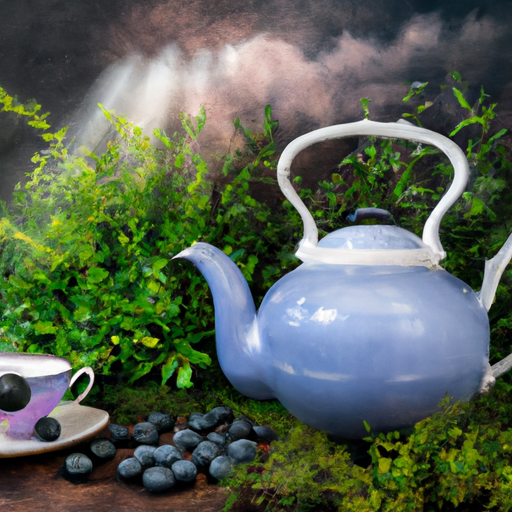Are you aware that Yogi Tea, a spiced immune-boosting Ayurvedic delight, can provide many health advantages?
With its blend of cardamom, cinnamon, cloves, black peppercorn, ginger, and black tea, Yogi Tea is not only delicious but also promotes digestion, enhances immunity, and purifies the blood.
Unlike detox teas, Yogi Tea can be enjoyed daily and can be customized to suit your individual preferences.
In this ultimate guide, I will take you through the process of making authentic Yogi Tea at home, allowing you to experience the calming and well-being benefits of using fresh herbs and spices.
From simmering the spices to adding the perfect amount of milk and honey, I will provide you with a step-by-step recipe to create your own cup of this Ayurvedic elixir.
So, get ready to indulge in the aromatic flavors and experience the holistic benefits of Yogi Tea.
Key Takeaways
- Yogi Tea is a spiced tea made with six ingredients: cardamom, cinnamon, cloves, black peppercorn, ginger, and black tea.
- Yogi Tea is based on Ayurvedic medicine and is known for its digestive and immune-boosting properties.
- Making spiced tea at home allows for customization and the use of fresh herbs and spices.
- Yogi Tea is a healthier alternative to detox teas and can be enjoyed daily for its immune-boosting properties.
What is Yogi Tea?
I love Yogi Tea because it’s a spiced tea based on Ayurvedic medicine. It contains six ingredients and is known for its digestive and immune-boosting properties. Unlike Yogi Detox Tea, which focuses on cleansing herbs, Yogi Tea combines the goodness of cardamom, cinnamon, cloves, black peppercorn, ginger, and black tea.
This unique blend not only tantalizes the taste buds but also provides numerous health benefits. Yogi Tea stands out from traditional spiced teas due to its carefully selected ingredients that promote overall wellness. While other spiced teas may vary in their spice blends and even include fruits, Yogi Tea follows the original recipe from ‘The Way of Ayurvedic Herbs.’
With its antioxidants and the specific properties of each ingredient, Yogi Tea is a delightful and holistic choice for daily immune support and digestive health.
Health Benefits
One cannot underestimate the incredible health benefits of this invigorating blend of spices and herbs. Yogi Tea is not just a delicious beverage; it also offers a wide range of health benefits. The science behind these benefits lies in the powerful properties of the ingredients used in Yogi Tea. Cardamom, for example, enhances digestion and reduces gas, while cinnamon has antiseptic and antibacterial qualities. Cloves aid digestion and have anti-inflammatory properties, and black peppercorns are known for their blood purifying and digestive aid properties. Ginger, considered universal medicine in Ayurveda, benefits various systems in the body. Additionally, black tea synergizes with the other ingredients and provides additional antioxidants. Incorporating Yogi Tea into a daily wellness routine is a great way to boost the immune system and promote overall health and well-being.
| Ingredient | Health Benefit |
|---|---|
| Cardamom | Enhances digestion and reduces gas |
| Cinnamon | Has antiseptic and antibacterial qualities |
| Cloves | Aid digestion and have anti-inflammatory properties |
| Black Peppercorns | Purify blood and aid digestion |
| Ginger | Benefits various systems in the body |
Ingredients and Recipe
To make the best homemade version of this invigorating beverage, start by gathering the necessary ingredients and following the simple recipe.
Yogi Tea and Yogi Detox Tea may sound similar, but they’re actually different. Yogi Tea is a spiced tea that incorporates six key ingredients: cardamom, cinnamon, cloves, black peppercorn, ginger, and black tea. These Ayurvedic spices have their own healing properties.
Cardamom aids digestion and reduces gas. Cinnamon has antiseptic and antibacterial qualities. Cloves aid digestion and have anti-inflammatory properties. Black peppercorns purify the blood and aid digestion. Ginger benefits various systems in the body and is considered universal medicine in Ayurveda. Black tea synergizes with the other ingredients and provides additional antioxidants.
By understanding the healing properties of these spices, you can create a truly authentic and immune-boosting Yogi Tea experience.
Variations and Customization
Variations and customization can add a personal touch to your homemade spiced tea, allowing you to explore different flavors and adapt the recipe to suit your preferences. When it comes to the spices used in Yogi Tea, you can experiment with different combinations to create unique flavor profiles. Some popular additions include nutmeg, star anise, fennel seeds, or even a pinch of saffron for a luxurious twist. These spices can bring a warming and aromatic element to your tea.
If you prefer a sweeter Yogi Tea, you can adjust the sweetness level by varying the amount of honey or using alternative sweeteners such as maple syrup or stevia. Additionally, you can enhance the natural sweetness by adding dried fruits like raisins or dates to the simmering spices.
Remember, the key to customization is to trust your taste buds and have fun with the process. Be open to experimentation and find the perfect blend of spices and sweetness that resonates with your palate.
Frequently Asked Questions
How long should I simmer the spices in water when making Yogi Tea?
When making Yogi Tea, I simmer the spices in water for about 15-20 minutes. This allows the flavors to fully infuse into the tea. Simmering helps release the health benefits of Yogi tea’s spices, promoting digestion and immune-boosting properties.
Can I use a different type of tea instead of black tea?
Yes, you can use different types of tea instead of black tea in Yogi Tea. Green tea and herbal teas like chamomile or rooibos are great alternatives. Each tea offers unique health benefits, adding variety to your spiced tea experience.
Is it necessary to strain the tea before serving?
Yes, it is necessary to strain Yogi Tea before serving. Straining removes the spices and tea leaves, allowing you to enjoy the smooth and flavorful beverage. Additionally, straining ensures that you receive the full health benefits of Yogi Tea.
Can I use a non-dairy milk alternative in the recipe?
Yes, you can use a non-dairy milk alternative in the Yogi Tea recipe. Non-dairy milk, like almond or coconut milk, adds a creamy texture and additional health benefits, such as being rich in vitamins and minerals.
How long does Yogi Tea stay fresh?
Yogi tea stays fresh for about 2-3 days when stored in the refrigerator. To extend its shelf life, store it in an airtight container and consume it within a week.
Conclusion
In conclusion, Yogi Tea is a delightful and holistic drink that offers a range of health benefits. It’s unique blend of spices and black tea creates a comforting and immune-boosting experience.
By incorporating this Ayurvedic remedy into your daily routine, you can enhance digestion, reduce inflammation, and purify your blood.
Customizable and easy to make at home, Yogi Tea provides a sense of calm and overall well-being, like a warm hug for your body and soul.
So, why not indulge in this spiced delight and experience its soothing effects firsthand?










